Introduction
Are you aware that Cardiovascular Disease (CVD) is the number one cause of death in the world?
Ladies, did you know that your risk for CVD—and other fatal diseases—increases drastically as your estrogen levels deplete and you reach menopause? This episode may be one of our most important podcasts to date because it contains lifesaving information that you or your loved ones need to know!
Watch the Interview:
On this week’s episode, we interviewed Double Board-Certified Integrative Gynecologist Dr. Felice Gersh and discussed:
📈 The leading cause of death in the world and how women are at higher risk after menopause.
🧠 How women’s brains create less estrogen than men’s brains (which increases risk for Alzheimer’s Disease by 2.5 times).
❕ The truth about the effect of estrogen on cancer and how estrogen regulates the immune system.
🧬 How menopause inevitably increases the risk of fatal diseases and how to maintain your health.
And much more about women’s health!
Additional Resources
To connect with Dr. Felice Gersh and discover more of her work, you can find her on Instagram, Facebook, Twitter and Subscribe to Dr. Felice Gersh's channel on You tube. You can also visit her website here.Transcript
Sarah: Hello, and welcome to the Goodness Lover Show. Today, we're talking to author and doctor, Felice Gersh, to talk about cardiovascular disease in women. This actually may be one of our most important podcasts to date, maybe our number one, because it contains lifesaving information that you or your loved ones need to know. So, let's dive in. I hope you'll love it. Sarah: Dr. Felice Gersh, it is wonderful to be with you this evening to talk about hormones and cardiovascular health in women. We're so excited. Thanks for joining us.
Dr. Felice Gersh: Oh, my pleasure. It is certainly an important topic, so, I'm so happy to have this opportunity to discuss it with you. Sarah: When we think about cardiovascular disease, I know, most people are aware that it's one of the biggest killers in the world. I think it's number one, right? The biggest killer in the world?
It is number one. Yes. Sarah: Yeah. Well, it's usually associated with men. When people think of cardiovascular disease, I think men are most typically associated, but I think people don't necessarily realize how important this is for women as well. So, I'd love for you to maybe share a bit of the background. How are we doing for cardiovascular disease, both in men and women, and particularly women?
Well, the sad part is exactly as you said, it's the number one killer of women, and yet, no one knows, very few people know, especially women. They feel very protected and immune to the consequences of aging when it comes to the cardiovascular system, because prior to the onset of menopause, they do have an edge over men. Men have significantly higher rates of both strokes and heart attacks prior to the age of menopause for women, which ranges around 50, 51 on average. But of course, there are some women that have early menopauses that go in in the early 40s. Even 40 years old, I've had patients. And then there are some women that get to stretch it out to the late 50s. But typically, around 50, 51.
And what they don't realize is once they hit into the 60s and by 65, women have caught up with hypertension and actually start to surpass men, but this just doesn't get publicized, doesn't get talked about. And the earlier a woman goes into menopause, the earlier the progression she tends to have into this cardiovascular risk area. And so, it's so important for women to realize that their edge goes when their ovarian senescence begins. Sarah: Wow. Okay. Thank you for shedding light on that. And I guess it highlights the impact of hormones on cardiovascular disease, which I think is not spoken about. Myself as a woman, I do not feel prepped about this. So, please share with us, what should we know about this?
Well, it turns out that it's very critically essential that a woman who is reproductively successful, a fertility situation, is also metabolically healthy. So, the unfortunate thing is that the hormones that are involved in reproduction are called sex hormones, for example, estrogen, progesterone, and testosterone, and that gives people the wrong idea that these hormones are about, like for women, menstrual cycles, and getting pregnant, and all the things that are associated with that type of issue. Estrogen has receptors on virtually every organ system in the body. And so, it's involved in hundreds of functions, cellular functions, mitochondrial capabilities in terms of producing energy, maintaining vascular health, brain function, gut health, liver, the myocardium, the heart itself.
Every single organ requires adequate and proper amounts and functioning of the receptors of estrogen in order to properly deliver what it needs to do to keep the body functioning. So, reproductive health and functionality is linked to metabolic health. And metabolism is really the driving force, it's the creation, distribution, and so one regarding energy. So, women have a timeline, we're working on a ticking clock, and our ovaries are destined to end their functionality before our life ends, which is actually lucky for us because many species are only alive as long as they are reproductive. Well, our ovaries fail and stop producing these critically important hormones, estrogen and progesterone, before we become gone.
So, we're still here, but what happens is, we lose the spark. The ability to maintain all of the organs at optimal function starts to decline as our ovaries start to decline in terms of their functionality. So, the cardiovascular system links every organ system in the body. No organ can be healthy if it doesn't get adequate nutrients and oxygen. So, as the vascular system starts to deteriorate and you get arterial dysfunction, the lining of the artery becomes inflamed and thickened, and plaque develops, and the heart itself can't pump as well because it doesn't have the capability to create energy as well, because that's what happens as women go through menopause, their hearts actually become estrogen deficient, and that means they become energy deficient.
So, all of this, and of course, affects the other organs, and in addition, as I mentioned, every organ has estrogen receptors as well. We are reproductively destined to be a little bit obsolete when our fertility goes down. There's ways that we can deal with this. We can either accept it and say, "Well, nature made it so that after menopause, we can face a whole array of health issues, including all the cardiovascular problems." Or, we can say, "Well, we are sentient beings and we are going to take matters into our own hands and deal with it so that our cells can have what they need to maintain the optimal health that really can be achieved when we do things in a little different way, with a little different twist."
And really, that's my focus on women through menopause, it's like, we don't have to just say, "This is our destiny," we can say, "We can actually rewire things in such a way that we can change our destinies."
Sarah: I remember a call that we had with you recently, Dr. Felice, where you were saying how you often get a bit of maybe pushback when you, and you're an integrative doctor, so you are very naturally based, but then you get some pushback when you're prescribing potentially something that's not necessarily exactly natural or something like that. And what you said on the call was, "Natural? We don't want natural. Dying is natural."
Dr. Felice Gersh: Exactly. And there's nothing more natural for a woman than to go through menopause, but there's nothing beneficial about it, other than you don't have to worry about getting pregnant accidentally. That's about the only benefit I can think of. And I have really racked my brain trying to come up with more benefits.
Matt: You've also told us before that instead of knitting, you're just into reading science journals. So, I'm guessing a lot of this extra passion, this is coming from maybe your little hobby you have, which is endlessly reading science journals.
Dr. Felice Gersh: Well, that's really what I define myself as, I'm a synthesizer. So, I read across all the different disciplines of science and medicine, and then I put it together into a cohesive construct so that we can actually understand what's happening, and then, of course, most importantly, devise a plan of action. Because if all you do is like, "Oh, woe is me, I have to face menopause," and there's no good solution, then that's just really sad. We have to have an out. So, my job is to define the problem because you can't solve a problem you haven't even defined, and then create an out. That's what I do.
Matt: Is there any latest science or discoveries in this area?
Sarah: Give us the out, Dr. Felice.
Dr. Felice Gersh: Well, first, it's, if we look at some of the areas in cardiovascular health that are specifically intertwined with estrogen, then we can help come up with the out. So, if we look at the arteries, for example, for an artery to be functioning well and be healthy, it needs to have flexibility. Nobody wants stiff arteries. We don't want to have inflammation in the artery wall, and we certainly don't want to have plaque clogging up our arteries and then rupturing, because it's an unstable plaque that kills us, not having plaque, but when it ruptures, and then you get like a little scab on the inside of the artery wall, which if it breaks off, it can travel downstream, and then of course, somewhere along the line, it will block because it'll hit a vessel that is too small for it to pass through.
And then all the downstream areas of tissue that are fed by that artery will no longer get oxygen, and then you end up with a stroke, or a heart attack, and so forth. So, what does estrogen do to maintain the health of an artery? Well, there are estrogen receptors in the walls of the arteries, and they are involved with the production of a gas, a signaling agent that's also an antioxidant called nitric oxide. And there's an enzyme called endothelial nitric oxide synthase, which actually requires the presence of estrogen in order for that enzyme to work properly and actually produce the nitric oxide. So, when you don't have enough estrogen, and you don't make enough nitric oxide, you start getting thickening of the lining, we call that intima thickening, and then you start having inflammation and damage in the artery wall.
And then, what happens is, those inquisitive and usually helpful macrophages, the cells of the immune system that are designed for two purposes, one is to detect pathogens like invading bacteria and viruses and such, and then go and attack them to protect us, and to detect damage. They have damage receptor so that they can go, like if you get injured, or you have dying tissue, cells that die, or burns and such, that they go and they clean up the damage so that we can then have repair, and then live and be healthy again. So, when you have damage in the walls of the arteries, these macrophages go like, "Let's see what's going on in there."
And unfortunately, these are the same macrophages that are swallowing up the old yucky cholesterol that is oxidized, like rancid cholesterol. So, now they're carrying all these rancid cholesterol, or oxidized LDL, we call them foam cells, they look like fluffy things, full of all this oxidized cholesterol, but they go into the artery wall, looking to see what's going on with the damage, and then they get stuck there. And that's the beginning of what we call the fatty streak that lays the foundation for the development of atherosclerosis. Well, it turns out that estrogen actually, through an enzyme that's called paraoxonase 1, help to prevent the oxidation of cholesterol in the first place.
And as well, estrogen works with the liver to maintain the proper function of what are called LDL receptors, that can pick up and retrieve and remove cholesterol like LDL cholesterol from the bloodstream. So, when you don't have enough estrogen, you end up with too much cholesterol circulating, it gets oxidized or rancid, and then the immune cells gobble it up, and then the artery walls aren't very healthy either, and then they get caught in the walls, creating all this plaque. Now, you have all this plaque building up, and the walls are still damaged because you don't have good ability to heal them, because estrogen is also about healing.
So, now you have this ongoing process, where estrogen, which is involved in the immune system, the liver function, cholesterol production, and maintaining proper cholesterol stability, all those systems go offline, so now you can have unstable plaque which can rupture, and you have a state of inflammation, because without estrogen, the body goes into the default system, which is a chronic state of inflammation. And then inflammation drives clotting to be higher, so you have more clotting propensity. You can see where this goes. So, now you have clots and scabs that break off, travel downstream, and then you have your heart attacks and strokes. So, there is not one aspect of cardiovascular health, when you're just talking about the arteries, that isn't involved in estrogen at some point along the way. And when you don't have enough estrogen, you actually make more cholesterol than you need.
They've had many articles published now that show that when you go into menopause and you don't have enough estrogen, you produce more cholesterol. You also, as I mentioned, have more inflammation, and inflammation drives insulin resistance. And without enough estrogen, women become insulin resistant, more prone to becoming diabetic. So, all of these things link into cardiometabolic health and dysfunction, increasing the risk of heart attacks and strokes. And so, women actually have more heart attacks than do men once they get into the much older age groups, but they have quite early on, they have more strokes than men, and more ruptured aneurysms than men, and develop more hypertension than men. And they respond differently to the blood pressure drugs as well. And often, doctors don't realize that.
And then, in terms of the heart itself, I mentioned that in order for the heart to have energy, you need to have enough estrogen. Well, estrogen is critical for the functioning of mitochondria, the energy-producing factories of the cell. So, the heart actually in women, becomes energy deficient and stiffer as well, which you can actually see on an echocardiogram as mild diastolic dysfunction. So, that is the prelude to the fix. Don't worry, because it sounds so dismal. It's like, okay, remember I said, first you define the problem, then you get it fixed. Okay.
Matt: I'm certainly waiting for this fix because I'm like, I'm a man worried about this.
Dr. Felice Gersh: And the reason I wanted to just go a little bit more in depth about, because I want everyone to understand that this isn't frivolous, these are really big deal things. So, what can we do? Well, this is how I look at it, maintaining health as you age as a woman is like trying to keep a thousand piece jigsaw puzzle together. Now, some of you may or may not have jigsaw puzzles like I do, but every time I open the box, I find a few more pieces missing. And it's like, "Where the heck did those pieces go?" But when you finally get the puzzle together, it's like, "Uh-oh, I'm missing more pieces." It's kind of like the socks in the dryer.
Anyway, as we age, we lose more and more pieces of our jigsaw puzzle. The 400 centerpieces are the hormone pieces of the puzzle, but the surrounding 600 are all the lifestyle pieces. So, in order to keep your puzzle looking cropper and put together, we need all of those things. If we start with lifestyle, well, when women go through menopause, it turns out that the master clock that sits at the top of the optic nerve in the brain, and senses both light and dark, and also, actually now we know, has nutrients sensors as well. This master clock helps to keep the beat so that all the organs in the body work in perfect synchrony, because you can't have like your pancreas working in a different time zone than your liver, but that's what happens when women go through menopause, because estrogen is really critical to maintaining the proper function of the master clock, this group of neurons called the suprachiasmatic nucleus.
So, when you don't have enough estrogen, it's like you're living a life of jet lag, really. And we know a lot about jet lag. It's not healthy. Everything bad that you can think of occurs in greater amounts when you have a jet lagged person. So, what can we do? Well, recognizing that we can work with light, and have bright light in the morning, that will help keep our master clock from drifting. That's actually the word that we use, it's like drifting, and it brings it back on track, or we call it entrainment, so that it gets that master clock back on the beat. So, you can start your morning with natural bright light, but if it's dark out, or you just can't get going because you have to go to work, and you have to get ready, you can buy a light box, and they're very inexpensive, and then you would set it to 10,000 lux for half an hour.
You can set up your light box while you're just getting ready in the bathroom, doing your hair or brushing your teeth, and then do maybe another 15 minutes in the middle of the day. And then at night, if you can see the sunset, the colors of the lights, the beautiful oranges and the reds, they suppress your cortisol and bring up your melatonin so that you can have better sleep. And melatonin is about everything. The more you learn about melatonin, the more you love it. It's about glucose regulation, it's the most potent replaceable, because you have to keep renewing it, antioxidant of the body. So key for so many functions.
So, you definitely want to help your body to make more melatonin and get the cortisol down, because women often are flipped. They have a lot of cortisol at night when it should be low, and then they call themselves night owls. I'm sure you've heard people calling themselves that. And I say, "I'm sorry, you're not an owl, those are nocturnal animals. You're diurnal. You're supposed to be functional, metabolically active in the daytime." So, we have to help the women, especially as they go through the menopause, but of course, we know circadian rhythm dysfunction can happen at every age these days, but it's endemic in women in menopause, so that they can actually get a good night's sleep.
We know as well that women without enough estrogen often have dysfunction of their sleep phases, so we want them to have a really dark situation in their bedroom. Like, I, myself, sleep with a sleep mask to make it really dark because it's impossible for me to get all the ambient light out of my bedroom, but I've learned to be very comfortable in a sleep mask. And then what I do is I take it off in the morning, let the natural light filter through my eyelids, and then after a little bit, I open my eyes. And that is like, you could also create a dawn, you can buy dawn simulators, that will help with the light coming up naturally. So, rather than you're getting up in the pitch black and then you turn on the light bulb, that's like, oh, that's just not the most natural way they can-
Sarah: Not to be painful.
Dr. Felice Gersh: It is painful. So, we want to work with the light, and that will help with your master clock. As well, it turns out that the microbes that live in our gut, our gut microbiome, those trillions of little microbial life forms, that they actually have clock genes. So, it turns out that every living creature is timed according to our circadian rhythm that we have, the 24-hour rotation of Earth on its axis. Every living creature, including single-cell bacteria, have clock genes, but we can control our microbes by feeding them on time like Pavlovian dogs, right?
So, if we train our little gut microbes like our best friends, our best buds in there, and we eat at the same time every day, and that means we don't snack, because they don't know what's going on if you keep feeding them endlessly. So, you have a big, big breakfast that really helps set your metabolism properly, you eat a big breakfast. The old thing about a medium lunch and a small dinner, or even better yet, if you're open to it, more advanced, you eat a gigantic healthy breakfast, and this is food, not conventional American breakfast foods. So, it could be a giant salad, a stir fry, but not breakfast foods like dry sugar-coated cereal. None of that kind of stuff.
And then you have no lunch, because you have this giant breakfast and lots of protein in that breakfast, but not too much animal, just a lot of plant-based protein, and then you have an early dinner, you will be in great metabolic shape. And that's been shown in many, many studies. And that helps women to get their metabolism back online. And then if you exercise in the morning, that will help to maintain weight. Women, when they don't have enough estrogen, once again, the default is developing belly fat. And every woman going through menopause, like, "I can't believe this. What is happening to my body?" Without adequate estrogen, you end up, generally speaking, with two body shapes.
One, and I did not make these up, so, don't blame me if you don't like the verbiage here, but you'll hear the labels, but you end up with someone who is just overweight, or fat, and then you have the other ones that they call the skinny fats. They look really thin, but when you actually do a body composition, you find that they actually do have an excessive amount for their weight, of belly fat and visceral fat, fat around their internal organs, and they're actually likely to have fatty liver, which is very prevalent in the menopausal years. And in terms of their insulin resistance, when they become more insulin resistant or become diabetic, which unfortunately happens, they're actually more fragile and more at risk than the women who are heavier.
And of course, they also tend to have more frailty over the course of time. And frailty, which is where you have lean body mass and a deficiency, very little muscle, and very weak bones, and so on, that is a higher risk factor than even hypertension is. And frailty, of course, occurs as women age, because estrogen, along with testosterone, which declines naturally, but separately from the menopause, help to maintain bone, lean muscle mass, and so forth. But without enough estrogen, you will develop sarcopenia. That's loss of muscle mass. All of these things come into play. So, we want to definitely exercise. And exercising in the morning helps with weight loss, exercising in the afternoon actually can help promote muscle mass more so. You can combine it or vary it. And so, that is really important.
And then women in menopause have an altered autonomic nervous system. So, they have more upregulation of sympathetic, which means they have more anxiety, mood disorders. It's really very, very high in terms of mood disorders. Women who've had a previous history of, say, depression, after menopause, their risk goes up 400% of having mood disorders. It's really high. And so, by doing a mind-body practice. I love things like guided imagery, we teach biofeedback with guided meditations in my office, but there are many things besides meditation for people who like other things like progressive relaxation, or tapping, where you can tap to the beat. I mean, there's many, many different forms. There's hypnosis.
So, everyone in menopause, at any age, but especially in menopause, should have their mind-body practice, whatever they find comfortable, because women, for example, with cardiovascular issues are more prone to what's called takotsubo, or broken heart syndrome, due to emotions. They have this extreme surge of sympathetic output from the autonomic nervous system, which actually can disrupt the normal functioning of the heart, creating like a heart attack situation, which actually can be fatal. So, you never can underestimate the power of emotions on the heart. It's really so important to be able to control those emotions because they really affect our health tremendously.
So, we have all of that, and then we want to reduce exposures to endocrine disruptors, the ubiquitous chemicals and toxicants in our environment, because we still make some estrogen. We're not completely estrogen devoid, we make it in our individual organs. In fact, that's how men, men are filled with estrogen, but they make it onsite in their organs. And without enough testosterone, men make most of their estrogen by converting testosterone into estrogen. That all estrogen is a derivative of androgens. It has to be, that's just the way it works. So, men's testosterone in the individual organs like in the brain, in the heart, and so on, can be converted locally.
And in the artery walls, there's the enzyme aromatase that converts testosterone into estradiol. But women obviously have very small amounts of testosterone, so, they don't have enough of the precursors to allow local production, but there's some, there is some. So, we don't want to interfere with what little we've got naturally with chemical endocrine disruptors like phthalates, and BPA, and flame retardants, and heavy metals. We do not want them in our body. So, we want to make sure we do everything to upregulate our detoxification pathways and avoidance, of course, as much as we can.
And then, in addition to all of those good lifestyle things, and of course, nutrition, of course, is always at the top of the pile, we now know that there are many foods that actually are phytoestrogens. It's amazing, I don't know how nature did that, but they created foods that they're polyphenols. I call them the magic sauce, the polyphenols that are in foods, they actually combined to our estrogen receptors. How amazing is that. So, there's, of course, most people know about flaxseeds, and then, of course, there's the soy with the isoflavones, but there are many, many other foods that also turn out to have estrogen-like properties like pomegranates, and there's many fruits and vegetables. They have so many, when you actually research it, so many of the polyphenols that look like they're beneficial, like quercetin, resveratrol. They actually have hormonal-like properties.
So, that's why it's so important to eat across the colors of the rainbow, all kinds of vegetables. And I also have a motto, don't be afraid of fruit. Fruit is not like a candy bar. Fruit has so much fiber, and antioxidants, and the polyphenols. So, I'm not saying that you should eat a diet of just fruit, but people sometimes shun fruit because they think it's going to give them diabetes. And I have to say, nobody got diabetes because they ate too many apples. That isn't the way it works. That's not the way it's working. No, that's not the reason. And women are prone to diabetes so much in menopause, even when they try to do everything right, because of the way their bodies metabolically are being manipulated by a lack of estrogen.
So, when we put all of this together, we can help to keep those 600 pieces of our jigsaw puzzle that are surrounding our hormonal 400 pieces back in the puzzle properly. And then we get to the 400 middle ones, which always starts by giving back sex hormones in a physiologic way. Because of the woman's health initiative, which I talk about a lot in my article, which so much poison the waters, and it's just so terrible because they did a study using the wrong population and the wrong products. And then they came up with a conclusion that was completely applicable to the population and the products, but then, for reasons that are bizarre, they generalized it to all populations and all hormonal products, including physiologic, bioidentical, human identical hormones, which would be tantamount to doing a study with strawberry-flavored jelly beans, and then saying, "They're really not good for your health, so, you should never eat an organic strawberry."
I mean, that's how insane it really was. So, I have tried so hard because it has caused brainwashing of doctors and patients alike, into thinking the wrong things. I mean, people should be afraid of certain things like a household full of plastic that they're eating out of and storing everything in, not having bioidentical physiologic hormones in your body. That is not it. And so, I try to explain the mechanisms, I mean, the thousands of amazing positive things that hormones do in the body. Remember, hormones are just information delivery systems. They're like messengers. And it would be like everyone became like in the story of Babel, and nobody could communicate with one another. What kind of a civilization will it be if nobody could communicate?
Well, that's what happens in our body when we don't have the right hormones, and then you throw in endocrine disruptors, and you have like the spies coming in and delivering the wrong information and change the message. So, you don't have the right message, you have the wrong message. And how on earth is the poor body, or how are the cells going to do the right things? So, the goal is to recreate the messaging system that exists in the healthiest of women, the young women, not the old women. I don't want to recreate the hormones of a person who's two years younger than me, I want the hormones of a healthy 25-year-old, because that's what happens when you get the right mix of lifestyle and hormones in the body, the cells of the body don't know individually how old they are, they are genetically programmed to do what they're designed to do.
If you give them all the equipment they need, the right nutrients, the environment, and so on, you work with their own clock genes, and then they get the right hormones, they're going to do their jobs way better. Now, realistically, no matter how hard we try, we're not going to be, when we're 55, we're not going to be like we're 25, but we could be so much better. That's where you talk about chronological age and biological age. So, my goal is, I don't care what my chronological age is, if I can functionally be 20 years younger with my biological age, not 40 years younger, I'm realistic, but how about quite a bit younger? And that can be achieved when you do all of this together, the lifestyle pieces of the puzzle, and the hormonal pieces.
And a lot of people don't realize that thyroid hormone requires estrogen to function properly. The hormone receptors for thyroid don't work properly in an absence of estrogen. And testosterone receptors don't work properly without estrogen. That's why you have to start with estrogen in menopausal women, and then, of course, you want to make sure that they have all the other hormones in place. But you can't micromanage everything. Let's be realistic. I know that there are people who are really big on things like peptides, and I'm not saying that there isn't a really important use for them, but to try to micromanage on a daily basis all of your peptides, they come and go in a flash.
So, I look more like the big picture, if I can provide the right food, and sleep, and stress control, and all of those things. And then I can keep hormones, the prime dominant type hormones of the body at physiologic levels and with some sort of semblance of physiologic rhythms, then I can give the cells of the body the best chance for them to do their job optimally. And then if you have a severe illness or a problem, then maybe that's when you start trying to go in and do a little bit of micromanaging. But as a general rule for just health maintenance, I don't think we can micromanage all of the functions of a cell. They're really complex. And even measuring and monitoring hormones is complex enough as it is.
Sarah: Wow. Well said. I don't know why I'm always so shocked whenever I talk to you. Just every time, I'm like, "Wow, she's good." And it's like, I'm surprised every time. This is amazing. Thank you so much for sharing with us. I have some questions around hormones. Where are we at with hormones? Replacement therapy, that is. What are the concerns there? How appropriate is it for the average woman, for every woman? Where are we at with the science and I guess trials around that?
Dr. Felice Gersh: Well, the average woman will benefit from hormones. There's only a few exceptions like women who obviously have an estrogen receptor-positive cancer. And just as a small note about that, estrogen does not cause cancer, estrogen prevents cancer. That's why the younger women have far fewer cancers than older women, especially when you talk about colon cancer, breast cancer, uterine cancer. They occur much more in older women who don't have hormones because estrogen is very important for regulating immune function. All of the immune cells in the body have estrogen receptors. And when you don't have enough estrogen, then they go to their default, which they become more sensitive to any kind of inflammatory stimuli and release their inflammatory contents off.
They produce more inflammatory cytokines, and create this chronic state of inflammation. So, what we want to do is recognize all of that, and then start approaching hormones with a whole different viewpoint. Because the way that hormones came on the scenes way back was really for one purpose only, and this is really all that's approved by the FDA. So, I always have to tell people when I prescribe hormones, a lot of what I'm doing is off-label, because unfortunately, we are like still in the stone age. You asked where we are, we're in the stone age. Okay?
I'm going to be very blatant on this, because the only FDA approvals for the use of hormones in menopausal women is for reducing symptoms like night sweats and hot flashes, it's approved, but not with enthusiasm for bone health, but it does have that approval, which goes back, but they don't think of it as a primary therapy, but I do. And vaginal atrophy, which is now known as genital urinary syndrome of the menopause, but previously talked about as vaginal dryness and vaginal atrophy. So, that's it. But that's assuming that hormones are dangerous, because the idea was, well, you give the smallest dose for the shortest period of time, and then get the heck out of there.
Don't use it only if you're really terribly symptomatic, and then use a lot of just vaginal, because vaginal doesn't go systematic into the whole body. And I just say, look, the vaginal canal is like the canary in the coal mine. If your vagina is drying up and really unhealthy, do you think that's a unique organ? That all the other organs are happy as a clam? Only a vagina is in trouble? No. I mean, you can think, "Oh, my gosh." You can think of menopause as, it's a little bit symbolic, but everything is drying up. You get dry mouth, you get dry eyes, you get dry skin, you get dry arteries, you get dry vagina, you get dried up brain. Come on, you don't want just to focus on one organ, we want the whole body to be happy.
So, we don't want to use the old thinking. That has to go in the trashcan. It's not about just delivering hormones at the lowest dose to try to stop some symptoms and then try to get rid of it as fast as possible, I look at hormones as what they are, critical to health and maintenance of every cell in the body. So, I want to recreate a physiologic level of hormones, and so, that's why I want to give hormones at the higher levels as far as like the commercial products. I mean, they come like for the estrogen patch, it comes in five strengths. My most commonly used dose is the highest dose, and then I measure, because I want to get levels up closer to a hundred. That's not a really low.
And when they did some of the studies after the Women's Health Initiative with some of the products that were coming out of the market, the doses were so tiny that the levels that were achieved were not significantly different from the women's levels who were on nothing. And in fact, some of the studies, and I talk about it in my paper, where they said, "In this particular study," and that was called the KEEPS Study, they said, "You know what? It didn't show any harm, it didn't show any harm from using hormones, but it didn't show a heck of a lot of benefit. Like, the arteries didn't look like they were healthier."
And then you look at the levels achieved, and they were not very significantly different from the levels of women who were not on any hormones, because the dose was too low. So, it's not just about giving anything, it would be like, are you eating a healthy diet yet you have one bite of vegetables a year? I mean, I think there's a dose and result relationship. So, you have give hormones to achieve a level that's going to actually do something useful. And the fear of estrogen has been so pervasive that the dosing has been like a joke, in many cases.
It takes almost a whiff and nothing more of estrogen to get rid of hot flashes, but it takes a heck of a lot more to help maintain bone health, and vascular health, heart health. And what about brain health? Not to mention vaginal health. They discovered way back many years ago that if the level falls below 50, the vagina's going to dry up. So, that's the minimum level that you need to get systemically in order to just maintain the vagina, but to really maintain bone, you have to be more closer to around a hundred. And in women, in the luteal phase, the second half of the menstrual cycle, the levels are often in the upper 100s, even into the 200s.
And so, we're not going into crazy high amounts here. We don't want to underdose. Nobody tries to underdose when they're giving other drugs. Come on, let's try to maintain proper hormones where nobody gives thyroid hormones just to keep somebody barely alive, they want to give an optimal amount. So, my philosophy seems so foundationally simple, give a physiologic amount to get optimal results. That's all. It's so simple, nothing too complex there. So, in order to do that, I have to give substantial doses, not crazy high, just enough to keep the levels in a physiologic range, not the top physiologic, and not the bottom, just mid range.
And it means I have to actually measure. Now, the conventional medical world says you don't need to measure the estrogen levels, you want to give the tiniest amount, and the woman will tell you if it's getting rid of her hot flashes. So, why would you measure it? They think that's ridiculous. But I'm not looking just to do that, I'm trying to have all the organs be healthy and functional so that every woman can avoid having all the problems that are associated with aging. So, I see aging as deficiencies. You don't have enough estrogen, and then that leads down the path of improper digestion, so then you have nutrient deficiencies, you have emotional deficiencies, and then you have musculoskeletal deficiencies and so on.
So, why would I want to end up with broken bones, joint replacements, cognitive problems, cataracts, glaucoma? All these things are estrogen deficiency related. So, I want to, instead of being reactive as conventional medicine is, like, "Okay, now we need to replace this joint." By the way, women have far more joint replacements than men. Women have more osteoarthritis than men. Women have more pain, more insomnia. And after menopause, women have more GERD, more acid reflux than men. Women have 80% of the osteoporotic fractures. Women live statistically longer than men, but with far more chronic disease than men. And that is not a happy life.
Women have at least two and a half times as much Alzheimer's disease as men, because men's brains make a lot of estrogen. They make six to eight times as much estrogen as the female brain, which is not a problem when women have all that estrogen coming from their ovaries. Women's brains are flooded with estrogen when they make it in their ovaries, but after menopause, actually the female brain becomes estrogen deficient, and all the neurons that are involved in producing serotonin, acetylcholine, which are about mood, and sleep, and cognitive function, memory, they all are in a declining state. Well, that's not what I want for my future.
Eating phytoestrogens, some of the foods, they may potentially help some, but they're not going to be the same. So, those are the helpers. And then the primary is just give the lady some estrogen please. Okay?
Sarah: Please.
Dr. Felice Gersh: Please. Exactly. It's so simple. And I have to give a little call-out to progesterone. Progesterone isn't just about preventing-
Sarah: A little shout-out.
Dr. Felice Gersh: Shout-out for progesterone. It's not just about preventing uterine cancer, progesterone has receptors all over the body as well. Progesterone is very important. So, even if a woman doesn't have a uterus, she still needs progesterone. It's such a ridiculous... I don't know why people would think that progesterone has one function in the body. There isn't anything in the body that has one function. We are so amazing, we are so multitasking. That's why I have problems with like peptides, because peptides are doing different things in different places in different levels all over the body, and hormones work in one organ. The neurotransmitter acetylcholine in the brain, it's about memory, but in the bladder, it's about causing contractions so that you can actually put out your urine.
So, you don't want to block acetylcholine in the bladder and think that you're not doing something bad in the brain. I mean, that's why we have pharmaceuticals that do that for overactive bladder. And they all have in the little fine print. This can cause increase of dementia. So, we have to be careful when we don't understand the multitasking of our hormones and neurotransmitters, their role. And so, progesterone, which is a little bit lesser in the hierarchy than estrogen, but it's still really important, and they balance each other. In fact, estrogen and progesterone are both involved in tumor suppressor genes, the genes that actually help to prevent tumors and cancers from forming.
Our bodies did not evolve to create cancer from our own hormones. That's not how it works. Our own hormones and our rhythms actually serve to prevent cancer. The rhythms of the menstrual cycle are there to actually protect the female body, not to harm the female body.
Sarah: Well, it's confirmed, when I start to hit this time of life, I'm coming to talk to you, Dr. Felice. I mean, it's terrifying thinking about all the impacts that a lack of estrogen has on the body, but thank you so much for sharing this with us. It's so important, and I can't believe it's not spoken about more. So, thank you for doing us a service today and for all our listeners. We're so appreciative.
Dr. Felice Gersh: And of course, like many of us who are in medicine, we have both an altruistic approach and purpose, and a little bit of selfish approach in that happening. Excuse me, I'm a female too, so, I knew this was going to happen to me, and I actually went through my own menopause. I think it was because I had massive circadian rhythm dysfunction from not sleeping for like 25 years, doing all of those middle of the night delivery. I love doing deliveries, but they actually do occur in the very early morning hours. And I thought, "Is this a wives' tale about women go through labor at night and then deliver in the early morning hours?" No, it's all about survival. It's actually circadian rhythm and all our rhythms at work because a woman who is in labor is very vulnerable.
So, it's much safer for her to labor through the dark, through the night, under the cloak of darkness, when a lot of the animals of prey are also sleeping. And then she delivers the baby in the early morning, just as twilight, dawn, I should say, just as dawn is coming, and so then she and the baby at least are then mobile. People can help her to get away so to get to a better place if something's happening. But in the middle of labor, when she's pushing, she can't get up and move, not going anywhere at that moment. So, it's really about survival and safety. But of course, as an OB doctor, I ended up getting up in the middle of the night, night after night. So, I had my menopause in my very early 40s, which was a real shocker for me.
And so, it became really incumbent upon me because estrogen was being mullein as like, "But I need it. I'm so young. How could it be okay for me? I went into menopause like about a decade too young. What is this? I'm going to not have any hormones?" So, it was really important for me to investigate and learn, like, "What is it?" And that's really has led me down the path to help every other woman, that, wait a minute, the fact that nature takes it away doesn't mean it's for our benefit. It just is what it is. Like, our hair gets gray, it doesn't mean it really makes us look better. Some people look great in gray, and some people don't like it. Same thing with wrinkles. Just because it's natural, like we said, just because it's natural doesn't mean it's to our best benefit.
So, I had to, for self-preservation, I had to learn everything about hormones, and then it became my pleasure to share all that information with other women who had to face the same thing, whether as young as me or older, at some point or other, you can't exercise, meditate, or do anything to get out of menopause when you're a woman. It's going to come, and it's such a big event, and it's so underappreciated for the global significance to a woman's health. And I thought at firsthand as I was suffering with night sweats and hot flashes, and I said, "I want hormones. I'm going to do whatever it takes." And that's what I say at this point, many years later, "No matter what, nobody's taking my hormones away from me."
And fortunately, the North American Menopause Society, a very conservative organization, came out in their new position paper and actually put in that women, with supervision from their doctor, can stay on hormones forever, for her entire life. There is no longer a hard stop. It never made any sense, but now, I mean, I'm vindicated, right?
Sarah: Yay.
Dr. Felice Gersh: So, it's like the big medical society that says, "You know what? It's okay." And in addition, they put in this group of words that gives me carte blanche. I love it. It said that, "You can prescribe hormones to women forever, for her whole life, for quality of life." Whoever put that in, I thank you so much because quality of life is nebulous. I can put anything under quality of life. And so now, any woman who wants to be on hormones for her whole life, for whatever reason she feels is going to enhance the quality of her life, is now deemed acceptable. Hooray.
Sarah: Hooray.
Matt: Awesome.
Sarah: Oh, wonderful.
Matt: Wow. Thank you so much.
Sarah: Thank you.
Matt: And this is such an important work.
Sarah: So important.
Matt: So, if people are listening to this going, "Hey," either thinking about someone or for themselves, where's the best place to find more information from you and-
Sarah: And for our more nerdy listeners, I know that you've just published.
Matt: Ooh.
Dr. Felice Gersh: Whilst there, I just want to say, standby, I have a book on all kinds of menopausal issues coming out. It's going to be finished very soon. So, it may not actually be, I don't know why they take so long, these publishers, but I think it may come out in the fall. But in the meantime, you can follow me on my Instagram, and then it goes onto my YouTube, where I have lots of information, and my, I don't know if you have in the show notes, but it's D-R, period, doctor with a period, and then Felice Gersh, and I'm going to do a whole bunch more on menopause. I try to come up with all the different topics that women find interesting. And I hope that I can be a service as well for people who wants to see me in person. I have a regular practice, brick and mortar practice in Orange County. I can also do telemedicine for most women. And so, I can help people one-on-one that way. And hopefully, as I get my books out, I'll have more that you can just read, and that will be coming pretty soon though.
Sarah: Ooh, so exciting.
Matt: Awesome. Do you have a title for the book, for those listening in the future?
Sarah: Or is it not released?
Matt: Or it's not allowed. That's hush-hush.
Dr. Felice Gersh: I don't, but if you want to go and sign up at my... Well, first of all, you can sign up for my, sometimes I put out newsletters. They're a little hit and miss, but when I try.
Matt: Between all those studies and reading.
Dr. Felice Gersh: I know. But I'm always doing my Instagram, and I will be announcing it. So, if you follow me on Instagram, then for sure, you'll find out and you'll get the actual title, because I think I don't get to pick it. I'm going to hopefully have some say in it, but it's going to be my first one on all kinds of interesting information about menopause, but I'm going to then follow up with a very detailed one on a how-to with hormones in more detail. So, it'll be like a step-by-step guide to how to use hormones, and hopefully, I'll be able to answer everyone's questions and needs.
Sarah: Wonderful.
Matt: Awesome.
Sarah: Thank you so much. We love this call as per usual. And for all our listeners, you can give Dr. Felice a follow on her Instagram to stay updated on all things menopause and her upcoming book. And her handle is @dr.felicegersh, and Felice is with a C. F-E-L-I-C-E. So, wonderful. Thank you so much, and we'll chat soon.
Dr. Felice Gersh: Thank you. Take care.
Matt: What a weapon. She's amazing. We would love to hear in the comments below what you thought of the interview. Do you agree? Disagree? Let us know. We personally think that this information is vitally important for women. And how many people do you know, people that obviously had heart attacks, maybe early-onset Alzheimer's or something?
Sarah: Dementia. Yeah.
Matt: This thing is a massive killer, and there's a lot of misinformation out there.
Sarah: Absolutely. And there's a lot of hope. Sciences, the bodies at bay have finally caught up to say it's a good thing. Bioidentical hormones is a good thing and we don't have to struggle through this like we previously thought. And so, we're super thankful for Dr. Felice really opening that can of worms about the impact of estrogen on health, and what we can do about it. So, let us know in the comments what you thought about the call, and maybe some aha moments that you had.
Matt: Yeah. Don't forget to like and subscribe to help this get out into the YouTube algorithm land. That just helps get this message out to the people that need to hear it the most. And if you were thinking about someone during this interview, and thinking, "Wow, they need to listen to this," give it a share, share it across your socials. That also helps get this message out as well.
Sarah: And if you're listening on our podcast platforms, please, if you would like, and we would love it, leave us a nice review. It helps inspire others to give it a listen as well.
Matt: A kind review would be would be nice.
Sarah: Kind review. Thank you so much, guys. Thanks for joining us for yet another episode, and we look forward to seeing you next week.






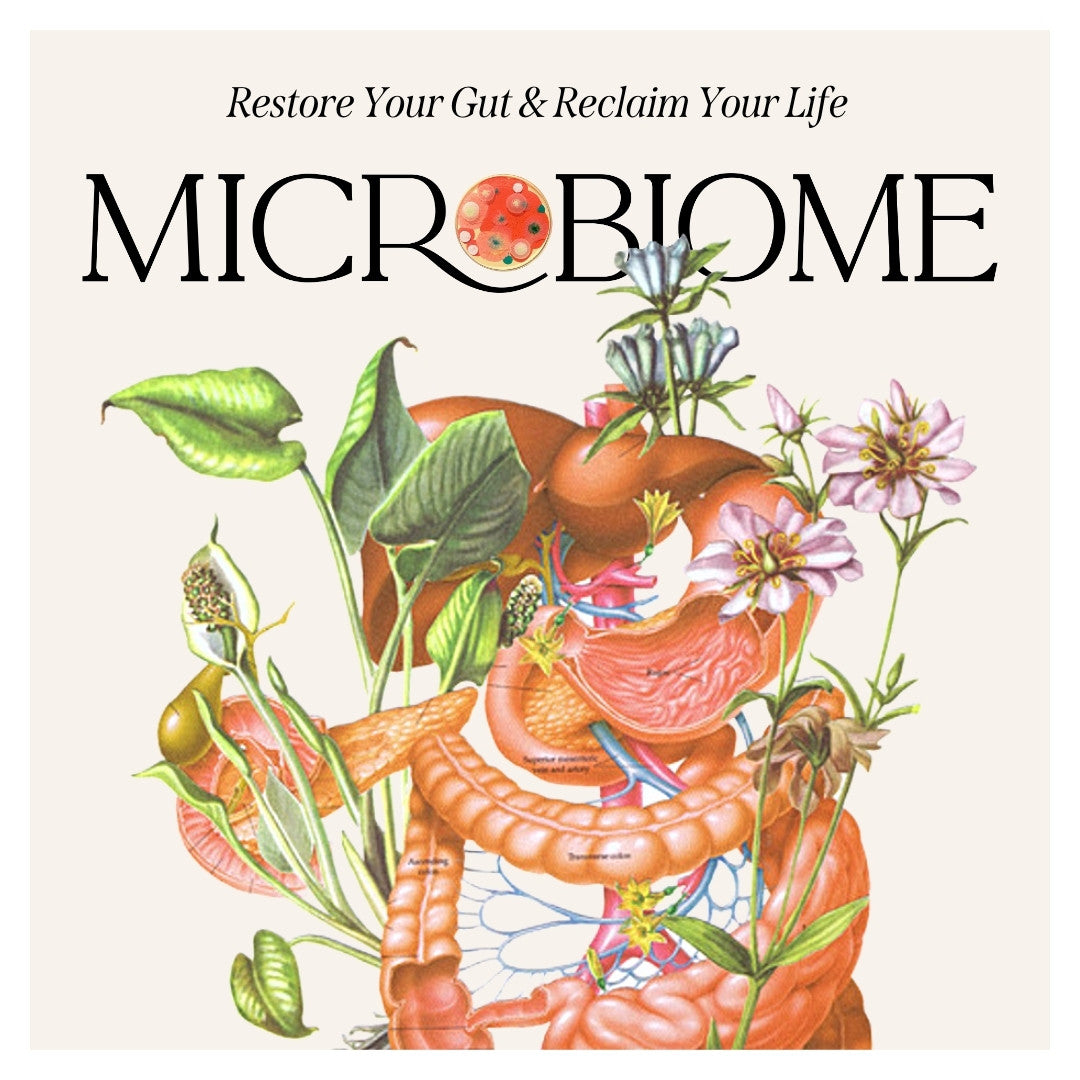

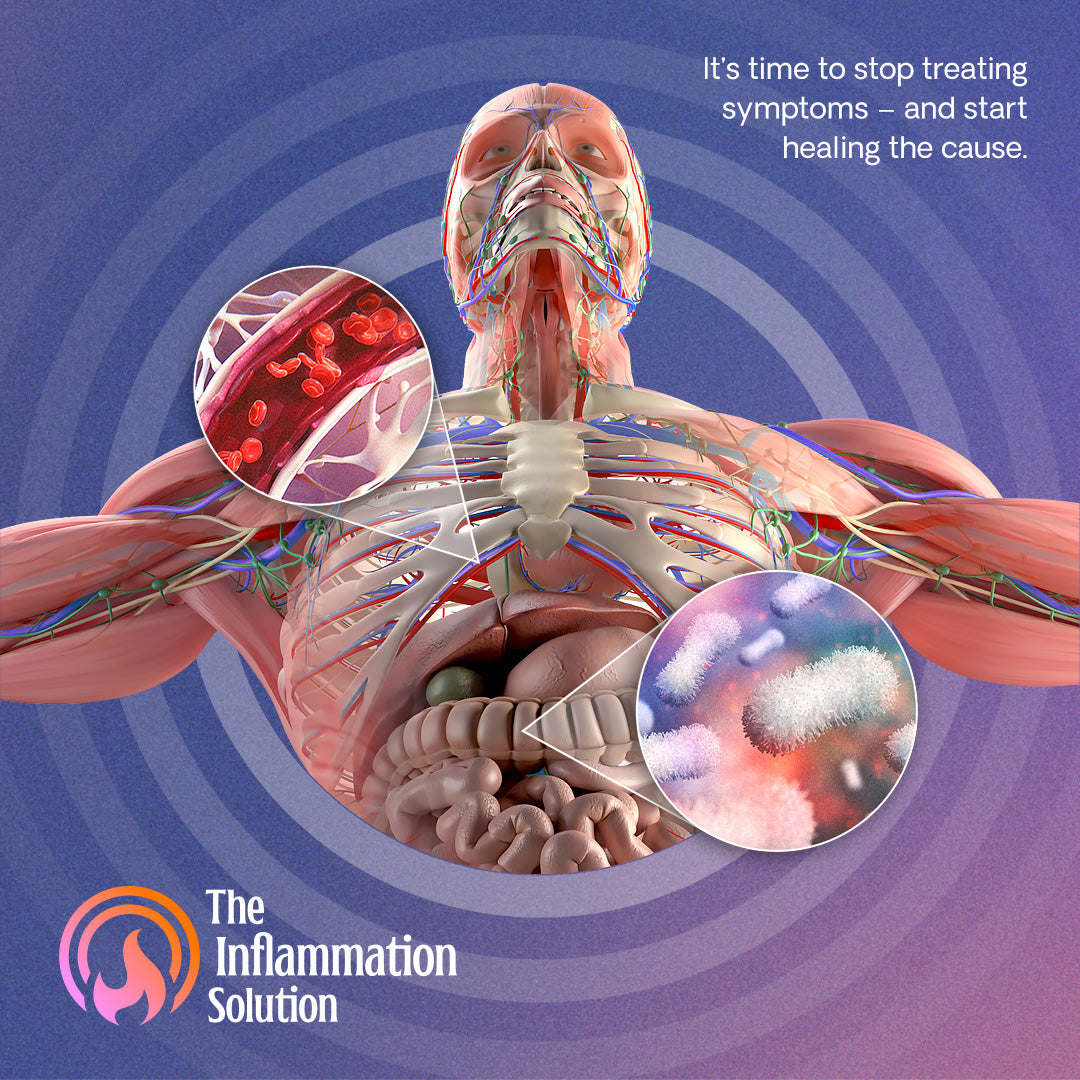
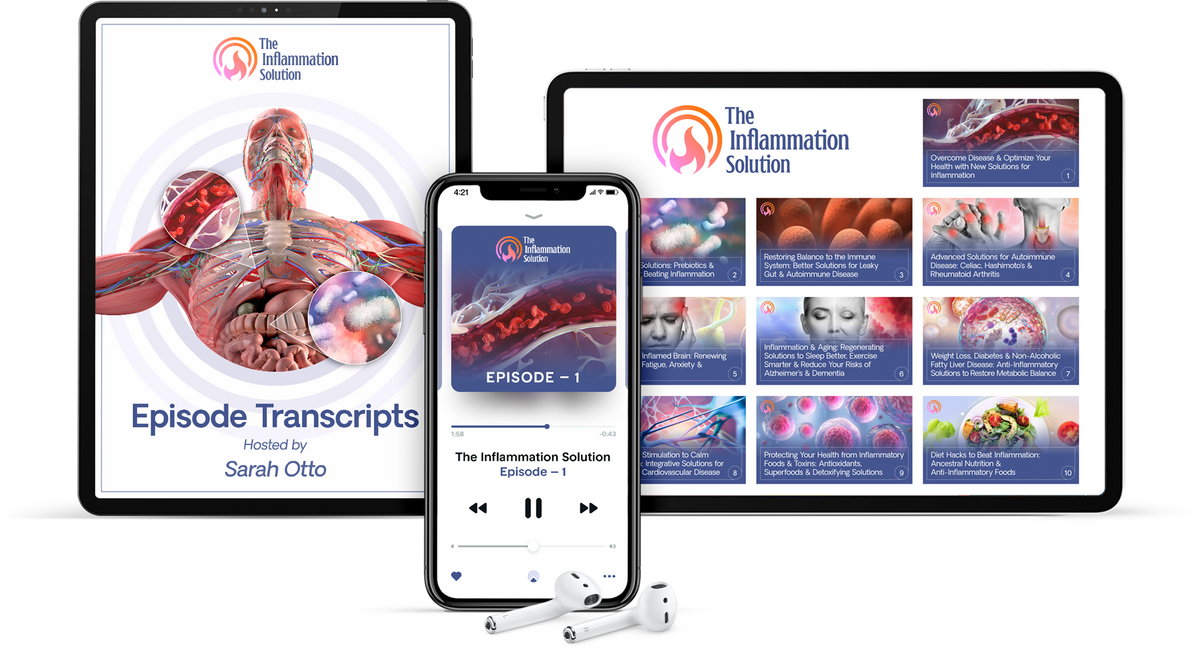
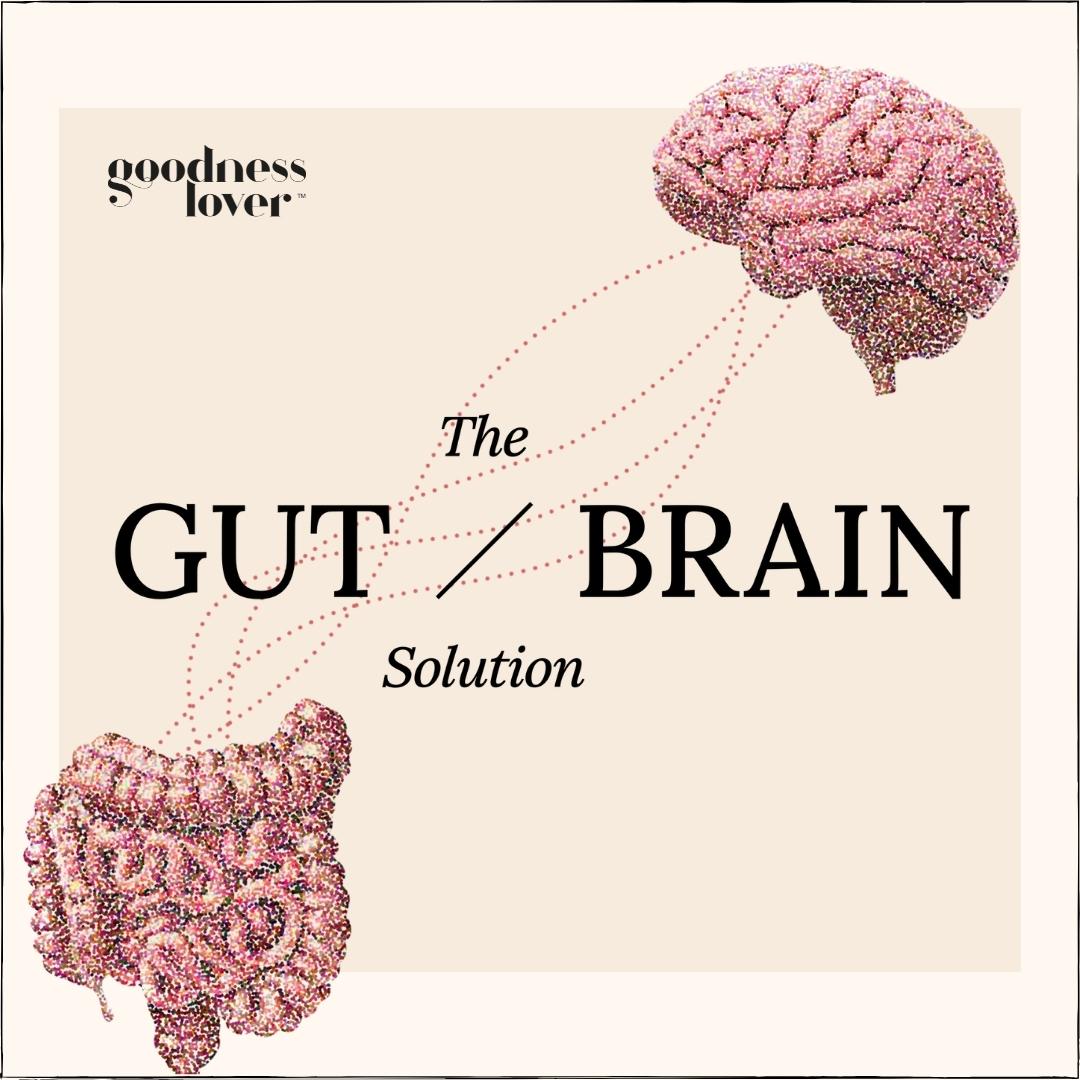

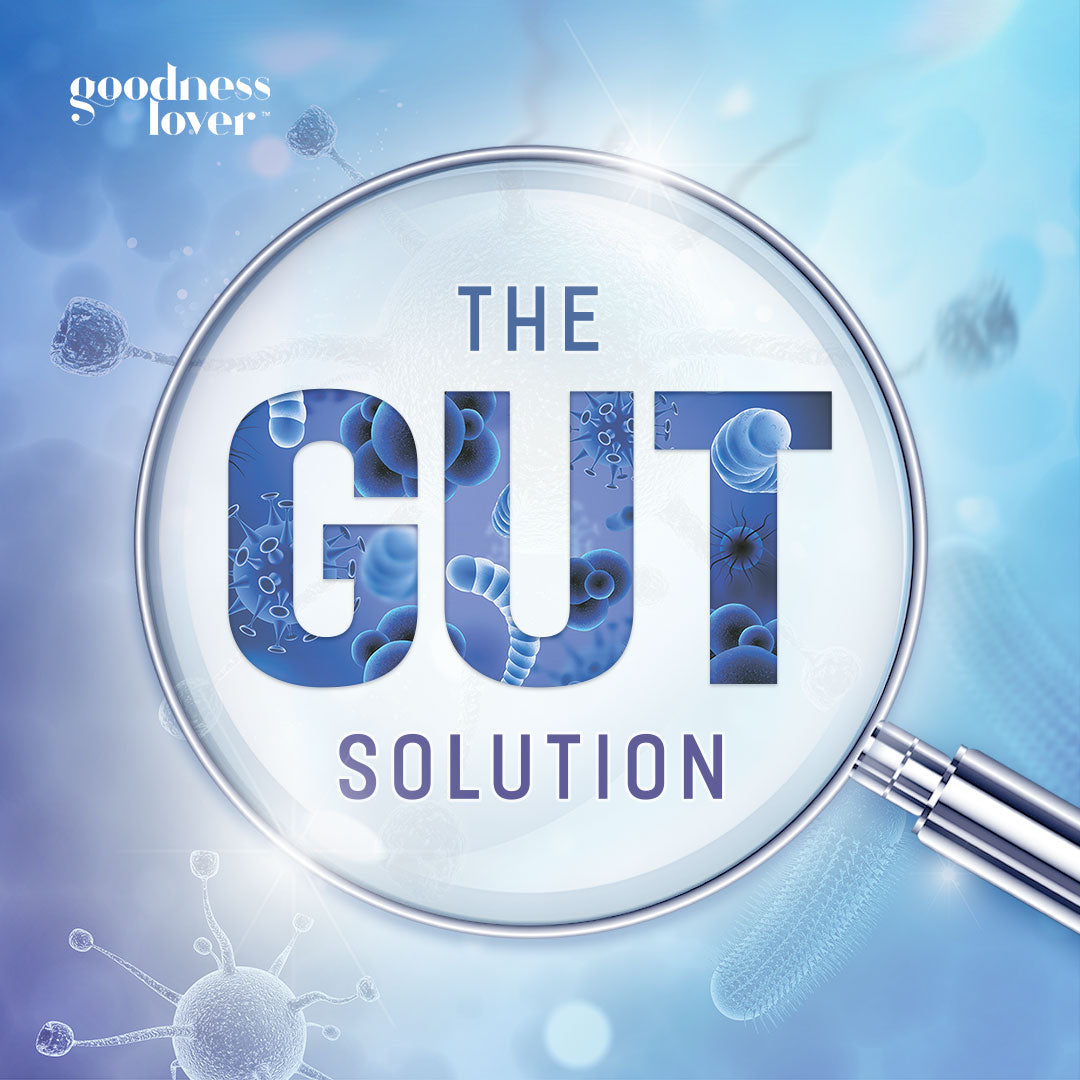
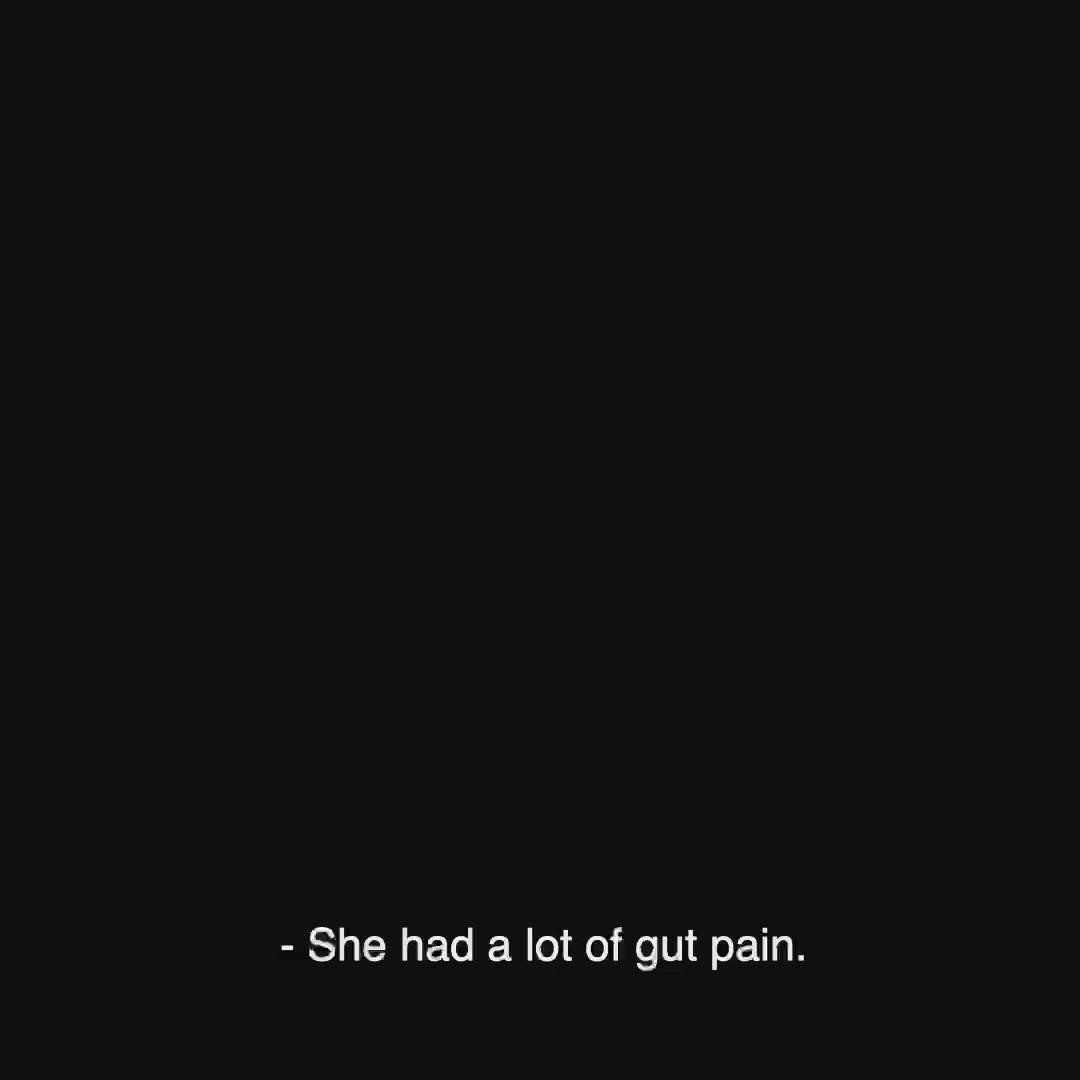
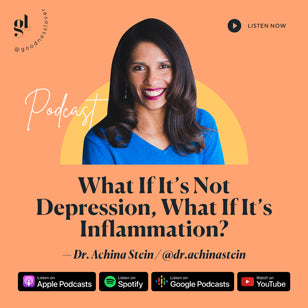
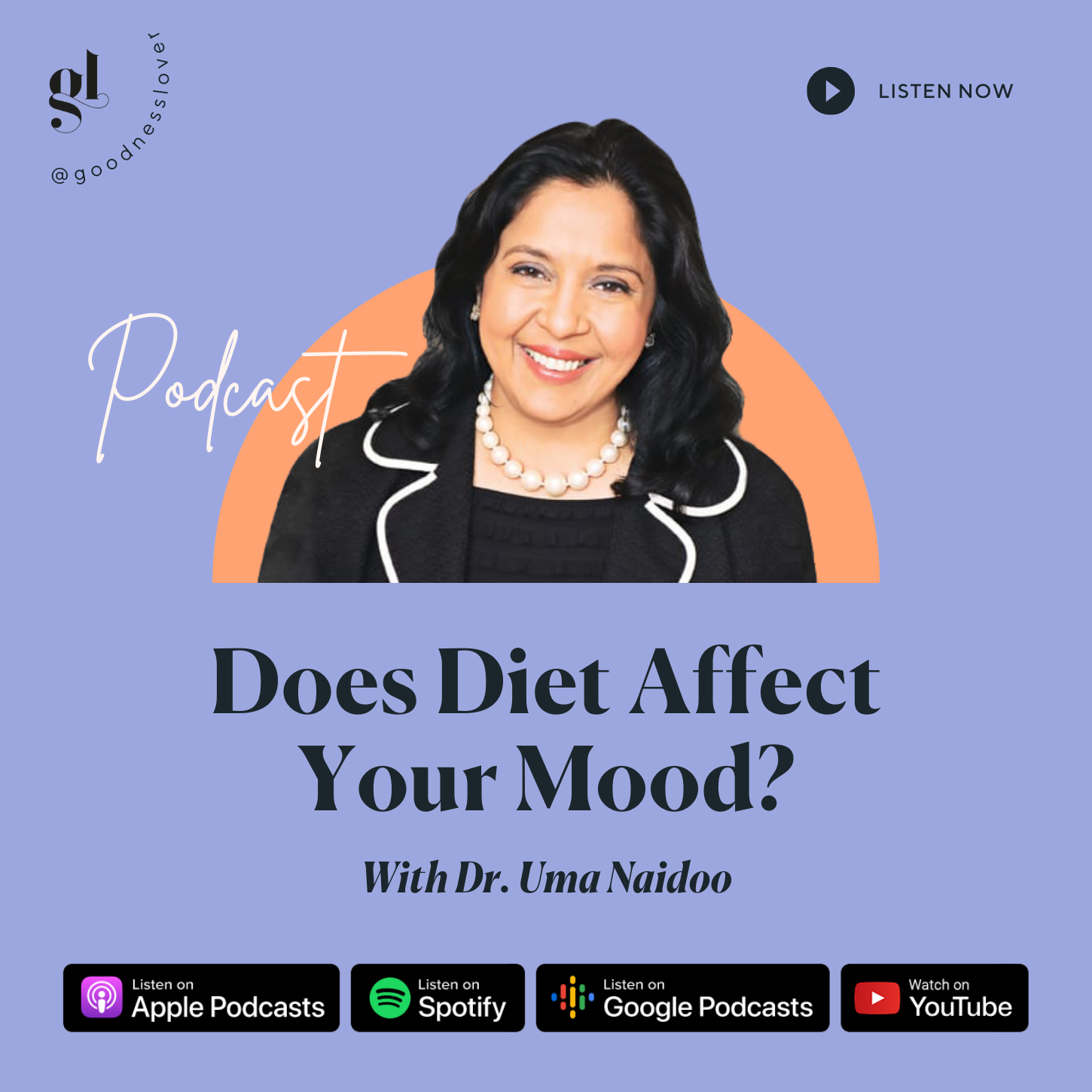

What Do You Think? Comment Below: